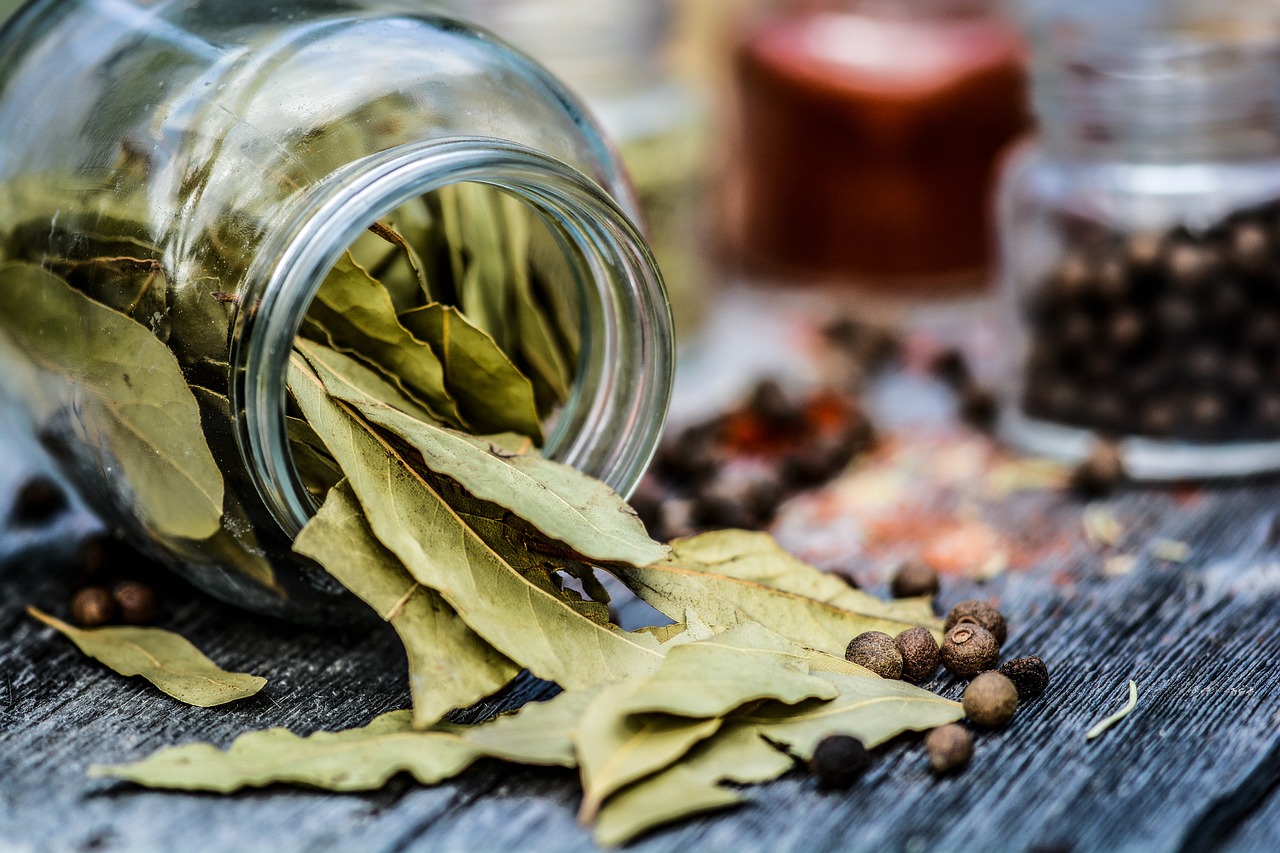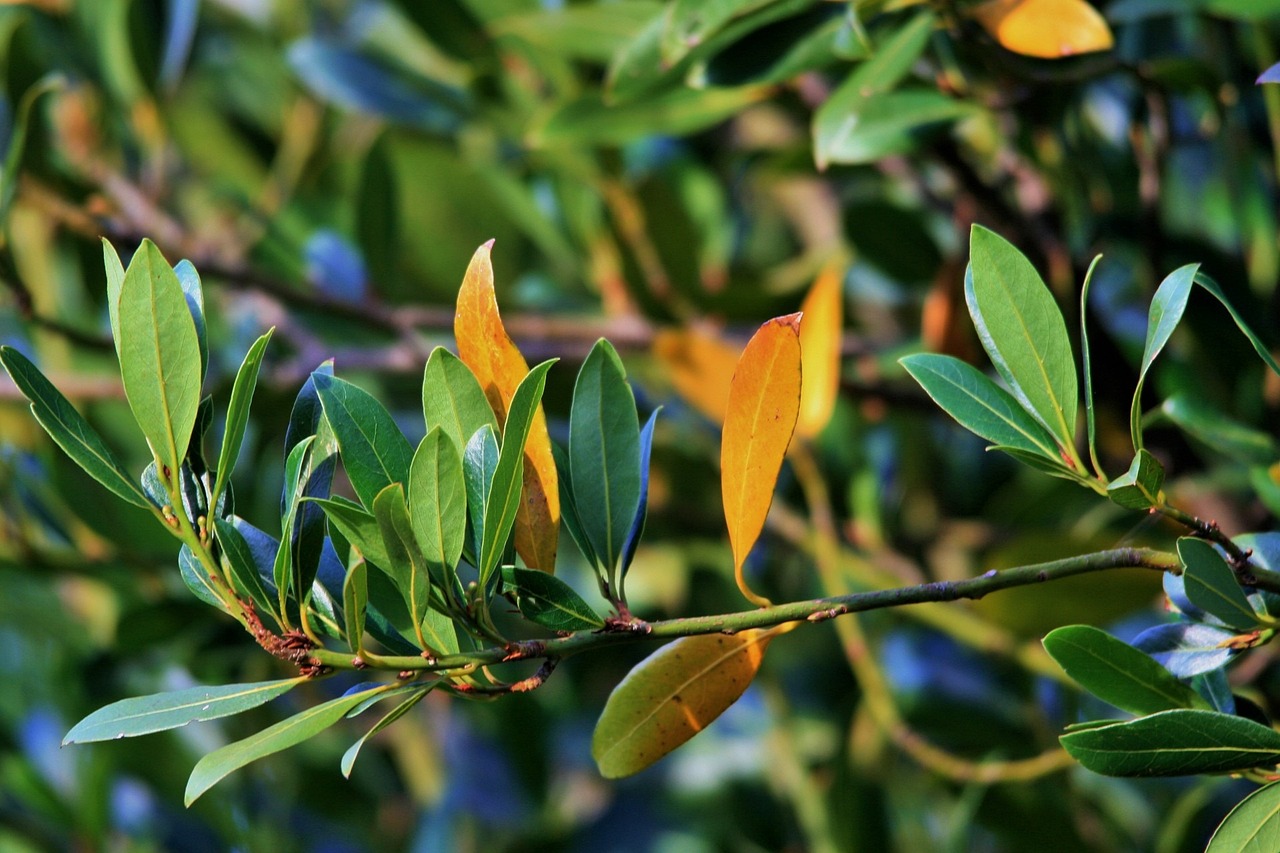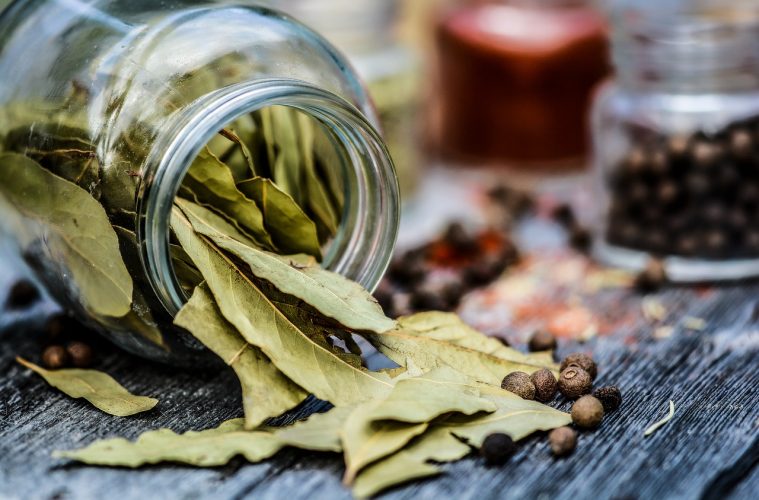Bay leaf scientifically known as Laurus nobilis is a perennial shrub that belongs to the plant family Lauraceae. Bay leaves come from various plants and are used for their distinctive flavour and fragrance. Bay leaf can add something extra to most savoury dishes, and it makes an aromatic tea. However, it should not be eaten raw or in large quantities on its own since it can be hard to chew and digest.
Bay leaves are edible and versatile
It is a popular spice used in pickling and marinating and to flavour stews, stuffing, and fish, bay leaves are delicately fragrant but have a bitter taste. The smooth and lustrous dried bay leaves are usually used whole and then removed from the dish after cooking; they are sometimes available and marketed in powdered form.
Bay has been cultivated from ancient times; its leaves constituted the wreaths of laurel that crowned victorious athletes in ancient Greece. During the Middle Ages bay leaves were used medicinally.

Image credit: Pixabay
Aesthetically pleasing
The bay tree is a popular garden plant which is suitable for growing in pots or in the ground. If it is kept neatly clipped, the dark-green foliage can be trained to create stunning formal shapes (topiary), or perhaps simply to frame an entrance or patio. Because it grows easily in medium to large containers and responds well to pruning, a bay tree is suitable for even small gardens or balconies.

Image credit: Pixabay
Easy to grow
Bay trees grow well throughout South Africa and are reasonably tolerant of salty sea spray, but do better in coastal regions if planted in a sheltered position. They are fully hardy and need to be protected from snow in colder regions. In cool to warm areas they thrive in full sun, but in very hot, dry, or tropical regions, bay trees appreciate some shade during the hottest part of the day. Bay trees grow in soils, ranging from very acidic to slightly alkaline. They prefer a fertile, well-drained soil and adapt to different soil types.
Bay leaf, with its rich history and versatile uses, is a must-have addition to any garden and kitchen. This aromatic herb not only elevates the flavour of savoury dishes and teas but also offers a touch of elegance to outdoor spaces when cultivated.
Whether you’re a seasoned chef or a green-thumb enthusiast, the bay tree’s resilience and beauty make it an ideal companion for South African gardens and beyond. Embrace the timeless charm of bay leaves and let their distinctive fragrance inspire your culinary and gardening adventures.
ALSO SEE:
Featured image: Pixabay

